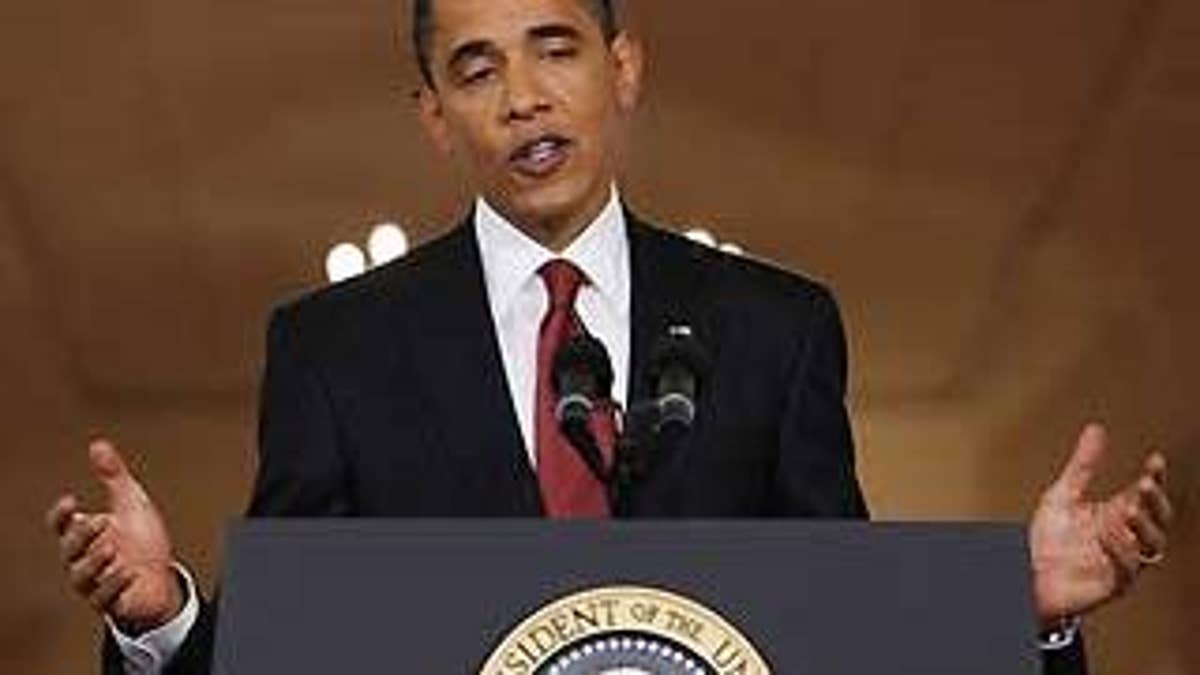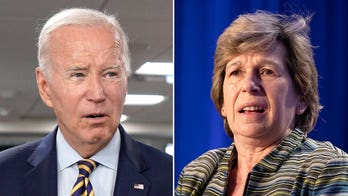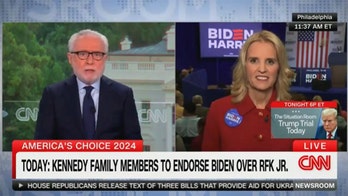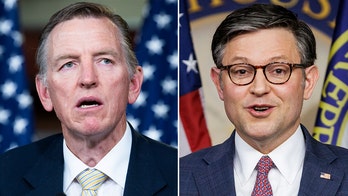
Charity groups are still jittery over a proposed tax change they say could cause wealthy donors to give less, despite assurances from President Obama this week that donations are unlikely to go down because of a reduction in the tax deduction for charitable contributions.
While Obama argues that his administration is trying to make sure low-income donors enjoy the same tax benefits for their giving as high-income donors, charities and the organizations that represent them say they are concerned they could end up paying the price for a more equitable tax code.
"To put any block between the donor and the charity at this time, I think, is not helpful," said Lisa Hillman, board chairwoman for the Association for Healthcare Philanthropy.
Obama told reporters during his prime-time press conference Tuesday that charities are wrong to assume the change will discourage donations.
"There's very little evidence that this has a significant impact on charitable giving," the president said.
But Hillman said her organization's opposition to the change still stands.
"I want to believe him, but I don't think that this ... is helpful," she said.
Ironically, Obama's proposal to change tax policy is intended to help raise hundreds of billions of dollars for expanding health care -- but Hillman said in the near-term, the tweak to charitable donations policy could put more strain on hospitals that rely heavily on philanthropy.
Other sectors in the nonprofit world have cause for concern as well.
A number of Jewish organizations, which rely heavily on donations from individuals from within the Jewish community, have spoken out against the proposal, arguing it will lead to a dip in donations to nonprofits.
"We're certainly not pleased the president is pressing this aggressively," American Jewish Committee spokesman Kenneth Bandler said Thursday.
Robert Sharpe, whose company, The Sharpe Group, consults clients on charitable giving, said the proposal amounts to a "sin tax" on charity. (Sin taxes are high tax rates that governments slap on products, such as cigarettes, to discourage consumers from buying.)
"This is the first time we've tried to discourage charitable giving among the wealthy by making it cost more," Sharpe said.
The proposed tax increase would take effect in 2011. Under the plan, households making more than $250,000 would see their tax deduction for charitable giving drop from 35 percent to 28 percent -- which is the rate applied currently to taxpayers who make less money and pay lower taxes.
For wealthy donors giving $100,000, for example, that difference could add up. Sharpe said that a donor who wants to give that amount would, under the new policy, have to pay an additional $7,000 in taxes -- or $107,000 total -- to make the same contribution.
He said that number gets even higher if the tax rate for top income-earners increases as well.
As a result, Sharpe said, accountants across America are going to be advising their wealthy clients to cut back on their charitable contributions to offset the tax.
Tax figures from 2006 show that families earning more than $250,000, which represents less than 2 percent of all taxpayers, were responsible for about 28 percent of all giving, amounting to more than $81 billion dollars in charitable gifts.
According to one study by The Center on Philanthropy, based on the 2006 tax data, the administration's tax proposals would result in a 4.8 percent reduction in itemized giving for the high-income households impacted under the proposed policy. That translates to about $3.9 billion.
"That's a noticeable amount. Most of us would rather have a 5 percent raise than a 5 percent pay cut," said Patrick Rooney, interim executive director at the Center on Philanthropy. "For organizations, many nonprofits are operating on very slim margins to start with, and any decline has a negative effect."
Lawmakers have taken notice of such studies, urging the administration to reconsider the plan out of concern for the charities.
Sen. Max Baucus, D-Mont., chairman of the Senate Finance Committee, told Treasury Secretary Timothy Geithner during a hearing in early March that he was "especially concerned" about the change.
Sen. Pat Roberts, R-Kan., said at the same hearing that he doesn't understand why the administration would create any "disincentive" to charitable giving.
"I know it's not going to bring a halt to charitable contributions," he said. "But it will reduce the contributions to charities at a time ... when Americans are relying more on charitable assistance."
Rooney said the impact still might be relatively small.
"Most households who are donors are not going to become non-donors because of this change in policy," Rooney said.
Obama said Tuesday that the provision would only affect 1 percent of people.
"I think it's the right thing to do," he said of reducing the deduction. "People are still going to be able to make charitable contributions. ... Now, if it's really a charitable contribution, I'm assuming that that shouldn't be the determining factor as to whether you're giving that $100 to the homeless shelter down the street."
Obama said an economic recovery, not a change to the tax code, will have the most significant impact on charitable giving.
"The most important thing that I can do for charitable giving is to fix the economy, to get banks lending again, to get businesses opening their doors again, to get people back to work again. Then I think charities will do just fine," Obama said.
Anne-Marie Grey, vice president for resource development at Save the Children, also said the "decision to donate to a charity is rarely made on the basis of the size of the tax break."
"Some people may choose to no longer give. I don't think that will be very many at all. ... I don't really believe it's going to affect the bottom line," Grey said.
Rooney said he still hopes the president modifies the proposal so that it would only go into effect if the country's out of recession.
"A significant recession typically has a negative impact on household giving," he said, arguing that ensuring the tax change waits until the recession ends would soften the blow to charities.




